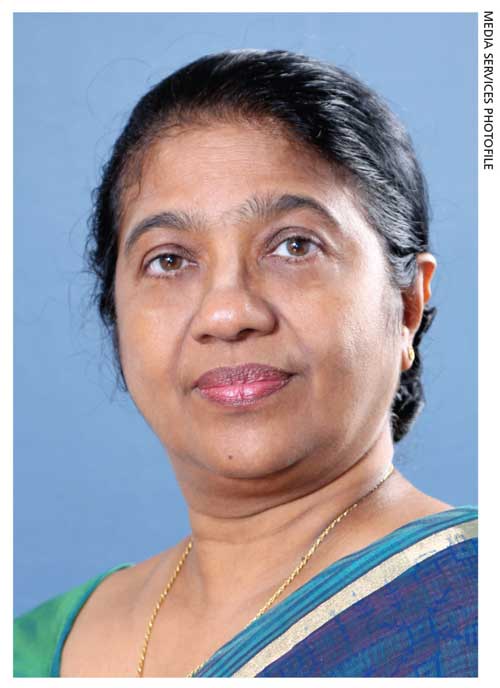LEGAL PROFESSION
Compiled by Yamini Sequeira
PROTECTION SPURS GROWTH
Anomi Wanigasekera believes Sri Lanka can do more to safeguard IP rights

Q: How does Sri Lanka fare in terms of protecting intellectual property (IP) rights?
A: The current intellectual property system in Sri Lanka is governed by the Intellectual Property Act No. 36 of 2003 (as amended), which covers various categories of IP rights, and their management and enforcement.
Trademarks, patents and industrial designs can be registered with the National Intellectual Property Office (NIPO). Copyright and related rights are protected without any formalities such as registration. And the provisions relating to unfair competition – including the protection of undisclosed information, geographical indications and layout designs – are also available.
Sri Lanka is also a signatory to important international conventions in relation to IP – namely the Paris Convention for the Protection of Industrial Property, Berne Convention for the Protection of Literary and Artistic Works, Agreement on Trade-Related Aspects of Intellectual Property Rights (TRIPS Agreement) and Patent Cooperation Treaty (PCT).
The IP enforcement mechanism is fairly comprehensive in line with the TRIPS Agreement.
Q: And how does this facilitate foreign investments?
A: IP protection is crucial in fostering international trade. Sri Lanka understands the important role played by intellectual property in the sphere of investments.
Foreign investors seek to protect their IP rights in Sri Lanka, and the current mechanisms for protection and effective enforcement will help both local and offshore investors.
Q: What checks and balances need to be in place to counter the violation of IP rights?
A: While law and enforcement mechanisms are in place, the implementation processes need improvement.
Awareness building in general and human resources development in law enforcement authorities – such as the police, customs and Consumer Affairs Authority, as well as lawyers and auditors – is essential.
Rights holders should be more vigilant regarding the protection of their rights – and cooperation and coordination among relevant public authorities must also be ensured. A link between state authorities is needed for effective protection and enforcement of IP rights, which Sri Lanka lacks at present to efficiently combat violations.
Q: Are there sectors in which IP infringement is common?
A: Infringement is not rampant but it occurs. For example, copyright infringement in the music industry is rather common. The same applies to trademarks to some extent.
Unauthorised disclosure and use of confidential information also occurs.
Q: What are the benefits of IP compliance for Sri Lanka?
A: It is commonly recognised that the creation, protection, use and management of IP contribute to overall economic and social development in any country. This notion is applicable to and is being recognised in Sri Lanka as well.
For instance, certain institutions such as universities are attempting to create new technologies, and develop collaboration and cooperation between research institutes and the private sector for research, development and commercialisation.
The private sector response appears to be positive and it is also interested in protecting its intellectual property rights. Success in such activities will guide the country towards the desired destinations in economic and social development.
There is a saying that globalisation and technological change has created a new global economy ‘powered by technology, fuelled by information and driven by knowledge.’ Countries and regions such as Japan, the US and even the EU are more interested in the use of IP for economic progress and prosperity.
Sri Lanka could certainly learn from these new advancements, and utilise them for its own economic advancement and prosperity. The country ranked 101st in the Global Innovation Index 2021, reflecting the potential for growth and improvement in its IP protection framework.
The International Trade Council notes that according to NIPO, 409 patent applications were filed last year, affirming an interest in protecting inventions in the country.
And in 2023, NIPO received 11,106 trademark applications, indicating the importance of brand protection in Sri Lanka.
Q: How will technological advancements such as AI shape compliance when it comes to IP?
A: We know that technologies such as AI are creating both problems and opportunities in many fields of human activity. The public and private sectors are concerned about such technologies, and their possible consequences.
Many teaching institutes are also paying attention to IP issues in emerging fields; they’re constantly monitoring situations in other jurisdictions. It is imperative that Sri Lanka cooperates with the international community to address related issues.
AI is computer generated work and as such, it’s debatable whether artificial intelligence can or cannot own IP rights. As it stands today, the legal framework for intellectual property in Sri Lanka does not provide AI with IP rights as the author or inventor must be a human being. This is the position in most jurisdictions.
In view of this, the laws will have to be amended to protect AI as an IP right.




